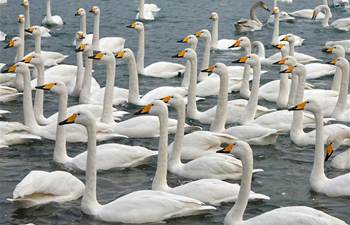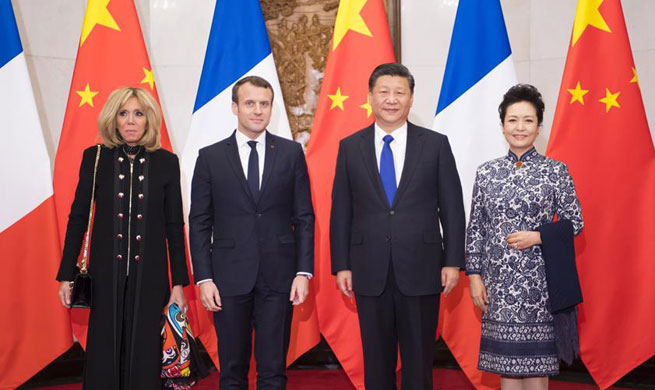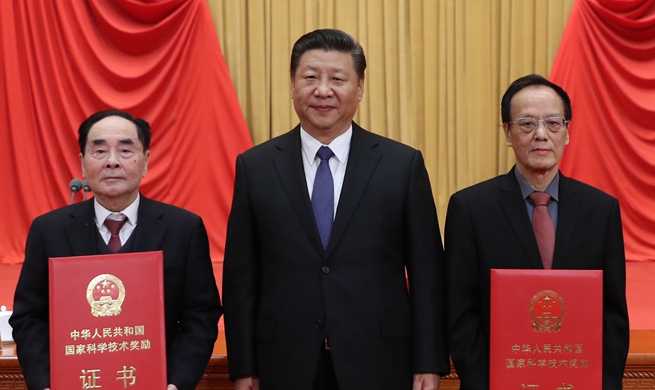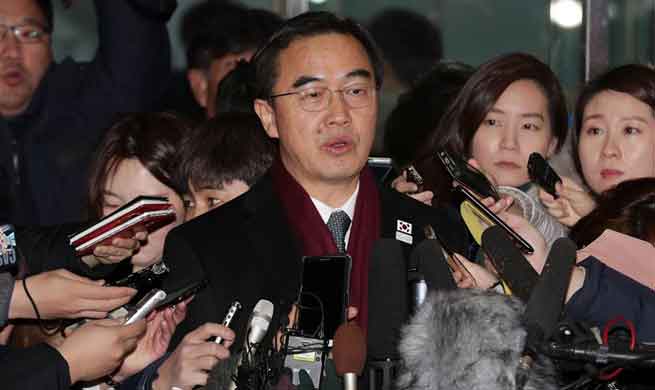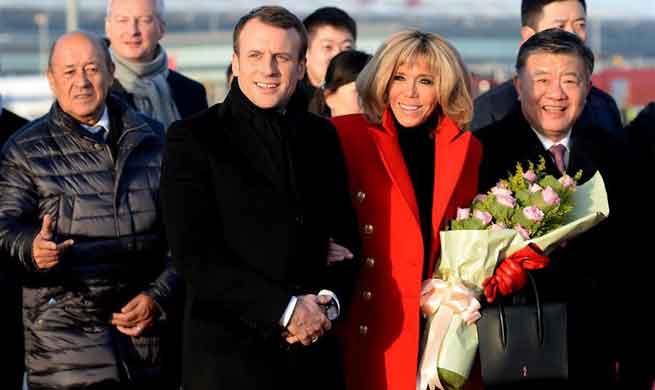by Xinhua writer Liang Junqian
BEIJING, Jan. 9 (Xinhua) -- More than half a century ago at the height of the Cold War, France crossed the ideological divide and became the first major country in the Western hemisphere to establish diplomatic ties with the People's Republic of China.
French President Emmanuel Macron embarked Monday on his first official visit to the country and is certainly no stranger to that pioneering spirit.
Amid a rising tide of protectionism and populism, and uncharted waters of Brexit, Macron has promised to initiate bold reforms to revive the sluggish French economy and to build a stronger and united Europe. He well understands that China is a natural partner to join hands with as he marches on to realize these ambitious goals.
Over the years, the two countries have maintained close cooperation in such areas as nuclear energy, aerospace and tourism. The two-way bilateral trade in 2016 totaled about 47 billion U.S. dollars, making China France' s top trading partner in Asia.
Internationally, the two sides also share similar stances on major international issues regarding free trade, climate change and globalization.
Macron's visit to China is certainly not just to marvel at these past achievements and agreements, but to join his Chinese counterpart, Xi Jinping, to inaugurate a new chapter for bilateral cooperation.
On trade and investment, France seeks to export more beef and poultry products to China, the world's most populous marketplace. Meanwhile, Chinese firms want to invest more in France.
Also, both governments share the drive to upgrade their industrial and manufacturing capacity. They have already agreed to align the "Made in China 2025" strategy with the "Industry of the Future" program in a bid to strengthen innovative high-end manufacturing cooperation.
The visit provides a fine opportunity for the two countries to explore the potential in these related areas.
At the 19th National Congress of the Communist Party of China held October last year, Beijing has renewed its commitment to shifting to a quality economic growth at home and help promote free trade and openness in the global economy.
France is warmly invited to harness the opportunities presented by the opening up of China.
In the meantime, Beijing supports a stable and prosperous European Union (EU). China also counts on France to play a constructive role in boosting its partnership with the bloc.
While in Xi'an, central China, the first stop of Macron's maiden China trip as French president and the starting point of the ancient Silk Road, the French leader urged Europe to work with China on the Belt and Road Initiative. It reflects his appreciation that such an initiative, proposed by President Xi in 2013, will offer extensive opportunities for European countries if they can get on-board.
As a major European country, France can also play a pioneering role in solving some of the lingering issues overshadowing China's cooperation with the continent, notably the market economy status.
If Macron intends to take the "China-Europe partnership into the 21st century," then he should know that procrastination on the status question would only stand in the way.
To greet his Chinese host, Macron gave Xi a horse, named Vesuvius, as a gift. In both cultures, a horse embodies the spirit of running ahead ceaselessly. So long as Beijing and Paris can hold on to that spirit, ground-breaking progress can be expected in their future relations.








